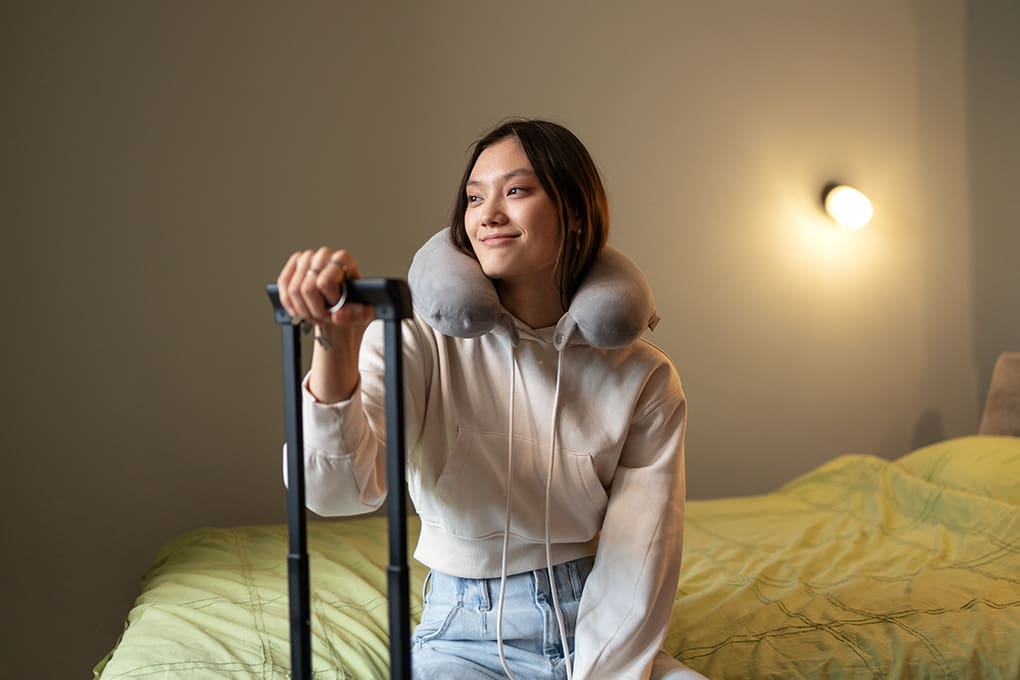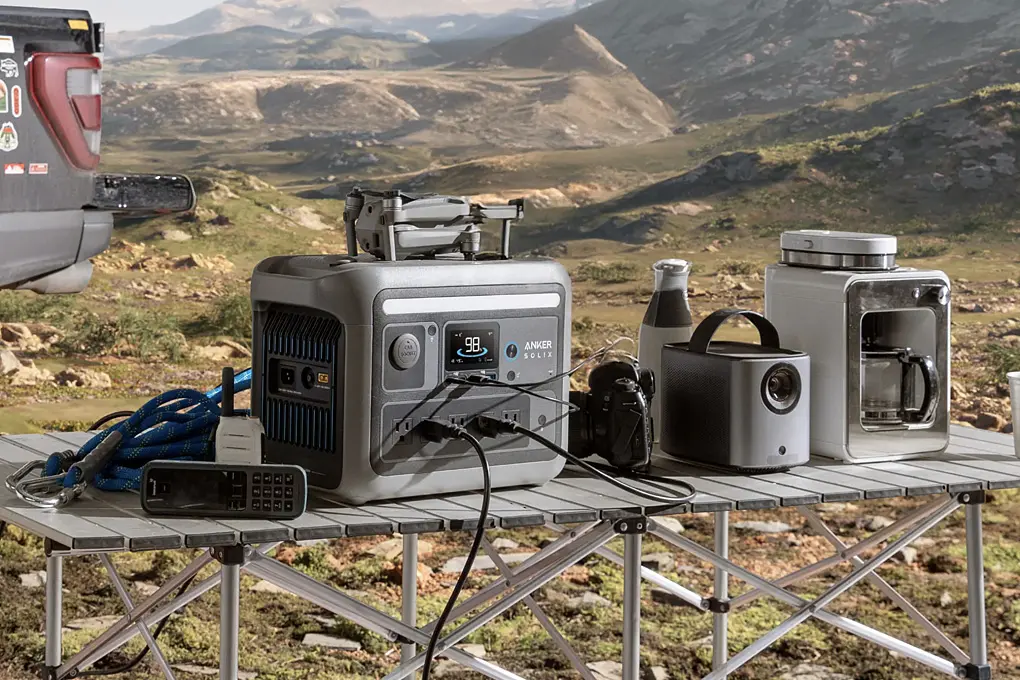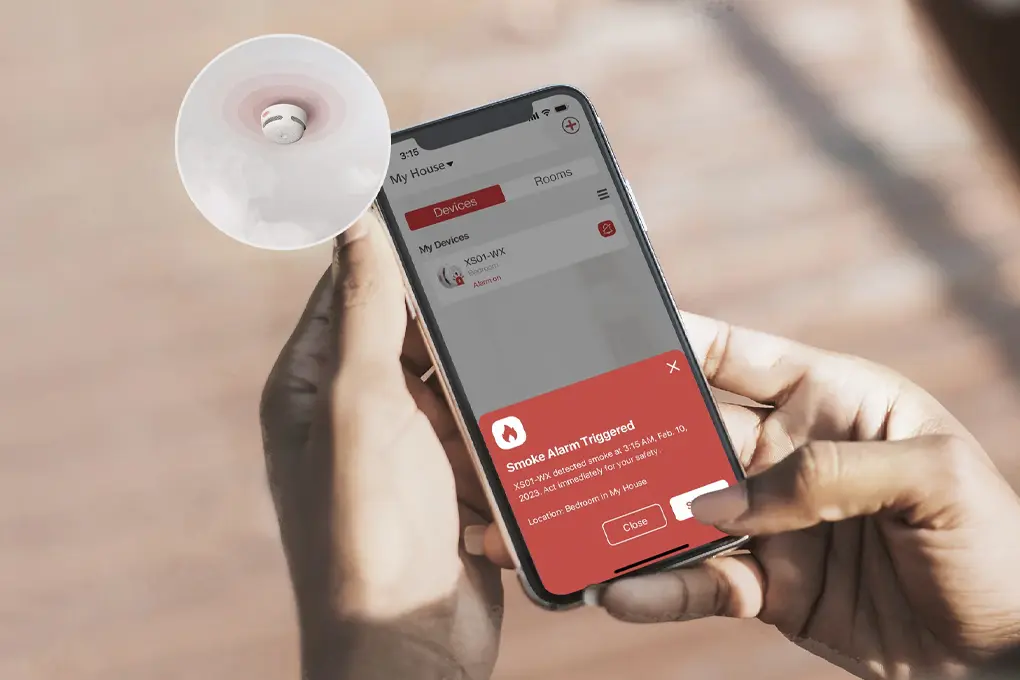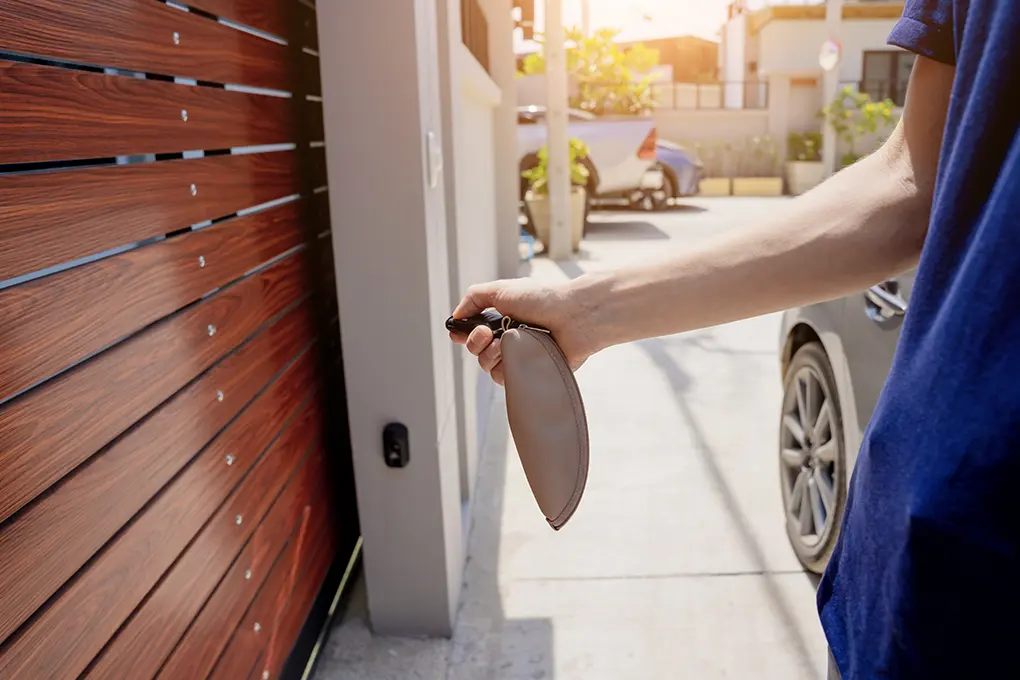Quick Answer: The best smart locks for Airbnbs are the Yale Assure Lock 2 for seamless Airbnb integration, Schlage Encode Plus for maximum security, and August Wi-Fi for retrofit installations.
Running an Airbnb or vacation rental means juggling access for multiple guests, often at unpredictable hours. Traditional keys create avoidable problems, such as lost copies, late-night handoffs, and security concerns when guests forget to return them.
Smart locks solve these headaches by automating entry and giving hosts more control over who can access their property.
This shift is more than a convenience upgrade. In 2024, 68% of hosts reported using smart locks, according to Lodgify’s vacation rental industry report.
The global smart lock market hit $2.77 billion that same year and is forecasted to grow at a 19.7% compound annual rate through 2030. The impact on guest experience is measurable too – Airbnb listings using smart locks average a 4.95 check‑in rating, proving that keyless entry directly boosts satisfaction.
Table of Contents
- Key Takeaways
- The Security Reality: Why Smart Locks Matter More Than Ever
- Why Smart Locks Are Essential for Vacation Rentals
- Top Smart Lock Recommendations for Airbnb Properties
- Smart Lock Comparison
- Connectivity Options: Understanding Your Choices
- Installation and Guest Experience Considerations
- Advanced Security Integration Strategies
- Property Management System Integration
- Cost-Benefit Analysis and ROI Considerations
- Future-Proofing Your Investment
- Making the Right Choice for Your Property
- Professional Installation vs. DIY Considerations
- Final Thoughts on Smart Locks for Airbnb and Vacation Rentals
- Frequently Asked Questions
Key Takeaways
- The vacation rental market is shifting toward keyless entry, with 68% of Airbnb hosts using smart locks in 2024.
- Crime statistics show burglaries peak between 10 a.m. and 3 p.m., making automated locks with access logs vital for rentals.
- Smart locks provide temporary access codes, built-in alarms, and monitoring features that reduce security risks and improve guest confidence.
- Models like Yale Assure Lock 2, Schlage Encode Plus, August Wi-Fi, and Kwikset Halo meet different needs, from high turnover to historic properties.
- Connectivity options include Wi-Fi, Bluetooth, and Z-Wave, each with distinct benefits for remote management and reliability.
- Smart lock installation can be DIY or professional, depending on door type, property complexity, and integration needs.
- For curated recommendations and expert-reviewed security products, visit Batten’s marketplace to find the right system for your rental.
The Security Reality: Why Smart Locks Matter More Than Ever
Current crime data provides valuable context for why property managers are adopting smart locks in growing numbers. According to the current statistics, residential burglaries accounted for 52.8% of all burglary offenses, with an average loss of $2,661 per incident.
Although overall property crime declined by 15.1% in the first quarter of 2024 compared to the same period in 2023, vacation rentals remain uniquely vulnerable due to frequent guest turnover and irregular occupancy.
Timing plays a major role in these risks. Data shows that most burglaries occur between 10 a.m. and 3 p.m., exactly when short-term rentals are often unoccupied during guest checkout or cleaning. Traditional keys increase exposure during these windows, as managers cannot always account for copies or lost keys.
Security deterrents also matter. Surveys reveal that 83% of potential burglars check for alarm systems before attempting entry, and about 60% admit they would move on to another property if one is present. Smart locks that integrate with alarms and access logs not only strengthen security but also provide visible reassurance to guests and property managers alike.
For hosts concerned about comprehensive property protection, understanding how hidden entry points burglars target can inform broader security strategies beyond just smart lock installation.
Why Smart Locks Are Essential for Vacation Rentals
The vacation rental industry has shifted dramatically in recent years, with guest expectations now centered on convenience and safety. Nearly 74% of hosts currently provide self-check-in options, reflecting growing demand for contactless stays.
Property managers must address high guest turnover while maintaining security and minimizing operational effort. Smart locks solve these challenges and introduce benefits that traditional keys cannot provide.
Enhanced Security and Access Control
Smart locks replace the vulnerabilities of physical keys with temporary digital access codes that automatically expire after checkout. Each guest receives a unique code that functions only for the duration of their stay, reducing risks from lost or copied keys. Property owners can monitor entry and exit activity through access logs, which are particularly useful for security audits and insurance claims.
Aside from basic access control, many smart locks include features such as built-in alarms, tamper detection, and encrypted communication protocols that help deter unauthorized entry. These features are especially beneficial for hosts managing multiple properties, where remote oversight is critical.
Real-world data supports these benefits. Properties equipped with visible smart locks experience fewer attempted break-ins compared to those relying on lockboxes or hidden spare keys. The presence of modern technology signals to potential intruders that the property is monitored and secure.
Streamlined Operations and Cost Savings
Smart locks simplify daily management tasks, reducing the need for physical key handoffs or on-site staff. Service providers, including cleaners and maintenance teams, can receive temporary access codes with scheduled expiration times. This flexibility improves coordination while maintaining strict control over property access.
For hosts managing several units, these time savings add up quickly. The ability to manage guest access remotely allows property managers to prioritize guest communication and property upkeep rather than logistics. Considering that monitored security systems average about $31.65 per month, the operational savings and efficiency from smart locks often offset or surpass this cost.
Insurance and Financial Benefits
Installing smart locks can also reduce insurance premiums. Many providers offer discounts of up to 20% for properties with integrated security systems. For vacation rentals, which typically carry higher premiums than owner-occupied homes, these savings can be significant. Combined with improved guest satisfaction and operational efficiency, the financial return on smart lock installation is compelling for most property owners.
Top Smart Lock Recommendations for Airbnb Properties
Based on our analysis of current market offerings and real-world performance in vacation rental environments, certain smart lock models consistently outperform others. The smart hospitality market is quickly growing, with a CAGR of 24.5% from 2023 to 2033, driven by business security and efficiency needs.
Yale Assure Lock 2 with Wi-Fi Connect
The Yale Assure Lock 2 stands out as one of the best smart locks for vacation rentals thanks to its dedicated Airbnb integration and flexible access options.
Designed to simplify property management, it automatically generates unique codes for each booking and sends them to guests through the Airbnb app. This automation eliminates manual code distribution and significantly reduces check-in friction.
During Airbnb’s early testing, properties using smart locks like this one earned an average check-in rating of 4.96, showing the direct impact on guest satisfaction.

Key Features
The Yale Assure Lock 2 offers several features that make it well-suited for hosts managing multiple properties:
- Touchscreen or keypad entry options with fingerprint-resistant matte finish
- Built-in Wi-Fi and Bluetooth connectivity, plus optional voice assistant control (Alexa, Google, Siri)
- Automatic code creation through Airbnb integration, expiring shortly after checkout
- Support for up to 250 unique access codes, ideal for high guest turnover
- DoorSense® technology for auto-locking once the door is closed
- Weather-resistant construction rated for outdoor use (ANSI/BHMA Grade 2)
- Backup physical key for emergencies and battery-powered operation
Why It Works for Vacation Rentals
The lock’s automation is particularly valuable for property managers handling multiple listings. Hosts can manage access remotely, share codes with cleaning or maintenance staff, and track entry logs through the Yale Access App. Guests benefit from a smooth check-in experience without downloading extra apps or coordinating physical key handoffs.
Its compatibility with Apple Home, Google Home, and other smart home systems makes it flexible for owners who already have connected devices in their properties. For areas with consistent internet access, the Yale Assure Lock 2 provides reliable hands-off management while maintaining strong security.
Pricing and Availability
The Yale Assure Lock 2 Touchscreen with Wi-Fi is priced starting at $259.99 and is available in multiple finishes, including Satin Nickel, Black Suede, and Oil-Rubbed Bronze. It fits most standard U.S. and Canadian entry doors and can be installed using only a screwdriver, making it accessible to property owners without professional locksmith experience.
Schlage Encode Plus Wi-Fi Deadbolt
The Schlage Encode Plus Wi-Fi Deadbolt is widely regarded as one of the most secure and durable smart locks for short-term rentals. Its built-in Wi-Fi removes the need for an additional hub, making setup simple for property managers who want reliable remote control.
With deadbolts representing more than 40 percent of the smart lock market, this model stands out for hosts prioritizing security and ease of management in high-traffic vacation rentals.

Key Features
The Encode Plus offers a blend of convenience and protection designed for frequent guest turnover:
- Built-in Wi-Fi for direct connection to the Schlage Home App
- Compatibility with Apple Home Keys, Alexa, Google Assistant, and Ring
- Built-in alarm technology for detecting forced entry attempts
- Ability to manage and schedule up to 100 unique access codes
- AAA-rated security, durability, and finish under BHMA standards
- Encrypted connection and SmartKey Security technology for added protection
- Battery-powered operation with simple installation on standard single-bore doors
Why It Works for Vacation Rentals
This lock performs especially well for properties with weekly or daily guest rotations. Hosts can create and revoke access codes remotely, track who enters and exits, and integrate with major smart home platforms for added convenience.
The Apple Home Key compatibility is particularly useful for tech-savvy travelers, allowing them to unlock doors with a simple tap of their iPhone or Apple Watch.
Its robust construction handles frequent use and varying climate conditions, making it ideal for rentals in both urban and resort settings. Property managers also benefit from built-in alarm features that add a visible deterrent to unauthorized entry attempts.
Pricing and Availability
The Schlage Encode Plus Wi-Fi Deadbolt retails for approximately $299.99 to $330, depending on finish and trim style (Century or Camelot). Available in Satin Nickel, Matte Black, Bright Chrome, and Aged Bronze finishes, it fits most U.S. and Canadian entry doors. Installation requires only a screwdriver, making it accessible for hosts without professional locksmith experience.
August Wi-Fi Smart Lock (4th Generation)
The August Wi-Fi Smart Lock stands out as a retrofit solution ideal for property owners who want smart functionality without replacing their existing deadbolts.
This design is particularly useful for vacation rentals in historic or high-end properties where maintaining original hardware aesthetics is important. Its compact profile and simple installation make it one of the easiest upgrades for short-term rental hosts who need remote access control.

Key Features
The August Wi-Fi Smart Lock balances flexibility and convenience with the following features:
- Retrofit design that works with most standard deadbolts
- Built-in Wi-Fi for direct app connectivity without a bridge
- Auto-lock and auto-unlock functionality using geofencing
- DoorSense technology to confirm if doors are securely closed
- Guest access via temporary digital keys sent through the app
- Compatibility with Apple HomeKit, Alexa, Google Assistant, and other major smart home systems
- Two-factor authentication and AES 128-bit encryption for secure access
Why It Works for Vacation Rentals
This lock is particularly effective for property managers who want to upgrade security without extensive hardware changes. By attaching to the interior side of the door, hosts can retain the exterior design and continue using original keys if needed.
Guests benefit from simple digital entry codes or app-based access, while hosts can issue and revoke permissions instantly through the August app.
The DoorSense feature is valuable for short-term rentals, as it allows managers to confirm remotely if doors were properly closed after guest check-out or during cleaning visits. Auto-unlock is also a popular convenience for repeat guests, allowing seamless access upon arrival without fumbling for codes or keys.
Pricing and Availability
The August Wi-Fi Smart Lock retails for approximately $229 to $250 and is available in Silver and Matte Black finishes. It runs on CR123 batteries and installs in under ten minutes with only a screwdriver. This lock’s retrofit design and compatibility with most single-cylinder deadbolts make it especially appealing for rental properties with existing high-quality hardware.
Kwikset Halo Wi-Fi-Enabled Smart Lock

The Kwikset Halo is a practical choice for vacation rental owners who want dependable Wi-Fi connectivity and strong security without a steep price tag.
Designed to work directly with your existing Wi-Fi, it eliminates the need for additional hubs or bridges, which simplifies installation and setup.
Its combination of SmartKey Security and flexible code management makes it well-suited for properties that host frequent guests or require multiple access levels for cleaners, managers, or contractors.
Key Features
The Kwikset Halo provides an effective blend of convenience and control:
- Built-in Wi-Fi for direct smartphone connection via the Kwikset app
- SmartKey Security technology for quick re-keying and protection against advanced break-in techniques
- Supports up to 250 programmable user codes with customizable scheduling
- Compatible with Amazon Alexa and Google Assistant for voice control
- One-touch locking and tamper alerts for added safety
- BHMA-certified for durability and performance standards
Why It Works for Vacation Rentals
For hosts managing single properties or smaller portfolios, the Halo’s straightforward operation offers just the right balance of features. The ability to issue permanent, temporary, or time-bound codes allows for seamless management of guest check-ins and service staff access without overcomplicating daily operations.
Its SmartKey re-keying function is particularly valuable if you maintain a mix of smart and traditional locks across properties, enabling you to standardize keys quickly. The built-in activity log lets you see when the door is locked or unlocked, giving peace of mind when guests check in or cleaners finish a turnover.
Pricing and Availability
The Kwikset Halo typically retails between $229 and $249, available in finishes like Satin Nickel, Venetian Bronze, Matte Black, and Polished Chrome. It installs in minutes using only a screwdriver and runs on four AA batteries, making it an easy upgrade for hosts looking to modernize entry without major hardware changes.
Smart Lock Comparison
| Feature | Yale Assure Lock 2 | Schlage Encode Plus | August Wi-Fi (4th Gen) | Kwikset Halo |
| Price Range | $259-$309 | $299-$330 | $229-$279 | $229-$249 |
| Connectivity | Wi-Fi (with Connect Bridge) | Built-in W-iFi | Built-in Wi-Fi | Built-in Wi-Fi |
| Max Access Codes | 250 | 100 | 50+ (via app) | 250 |
| Airbnb Integration | Direct via Airbnb app | Via third-party platforms (works with Apple Home/Airbnb) | Via August App | Manual (code sharing) |
| Battery Life | 12+ months | 6-8 months | 6-10 months | 8-12 months |
| Installation Type | Full replacement | Full replacement | Retrofit over existing deadbolt | Full replacement |
| Weather Rating | All-weather | All-weather | Indoor / covered use only | All-weather |
| Key Override | Yes | Yes | Yes (original deadbolt key) | Yes |
| Auto-Lock | Yes | Yes | Yes | Yes |
| Built-in Alarm | No | Yes | No | No |
| Best For | Full automation with Airbnb | High security and Apple ecosystem | Upgrading existing deadbolts | Budget-conscious rentals |
Prices and features are current as of 2025. Check manufacturer websites for the latest specifications.
Connectivity Options: Understanding Your Choices
The connectivity method you choose for a smart lock directly impacts functionality, reliability, and guest experience. In 2024, Bluetooth accounted for 62.3% of the smart lock market, but Wi-Fi-enabled models are projected to grow the fastest from 2025 to 2030 as property managers increasingly prioritize remote access and real-time monitoring.
Wi-Fi-Connected Locks
Wi-Fi-enabled smart locks connect directly to your property’s internet network, allowing hosts to control access in real time. You can lock or unlock doors, generate temporary codes, and monitor activity from anywhere using a smartphone app.
These locks integrate seamlessly with booking platforms like Airbnb, making them ideal for automated check-ins.
The main limitation is dependence on consistent network availability. In properties with weak or unreliable internet, remote functions may lag or fail. Hosts in such areas should consider adding a Wi-Fi extender or a cellular backup to maintain reliability.
Bluetooth-Enabled Systems
Bluetooth locks do not require internet access, making them practical for remote properties or hosts who want a system that functions independently of network infrastructure. They typically use proximity-based smartphone control but can also issue offline access codes for guests.
Battery life is often longer compared to Wi-Fi models since Bluetooth devices are not constantly connected to a network. However, remote management is limited, and these locks usually offer fewer integration options with property management platforms.
Z-Wave Integration
Z-Wave locks connect through a smart home hub and can integrate with broader home automation systems.
This setup allows hosts to coordinate multiple devices, such as locks, security cameras, thermostats, and even water leak sensors, creating a centralized property management ecosystem.
Z-Wave technology is especially effective for larger properties where extended range is needed, as the mesh network strengthens communication between devices across the property.
Installation and Guest Experience Considerations
Choosing the right connectivity method is only part of the equation. Proper installation ensures reliable operation and a smooth guest experience. While many smart locks are designed for DIY installation, vacation rental properties often require additional planning to address unique challenges.
Pre-Installation Assessment for Rental Properties
Before purchasing a lock, measure your door’s backset (distance from the door edge to the deadbolt hole center) and confirm compatibility with your door’s thickness. Most smart locks accommodate the common 2-3/8″ or 2-3/4″ backset sizes.
Inspect the current deadbolt and door alignment. If the door sticks or the deadbolt does not engage smoothly, resolve these mechanical issues first. Poor alignment can prevent electronic locks from operating properly and lead to negative guest feedback.
Consider environmental factors as well. Coastal properties may need corrosion-resistant locks, while high-traffic rentals benefit from reinforced keypads that withstand heavy use. Visibility also matters – locks visible from the street can serve as a deterrent to potential intruders.
Network Requirements and Backup Plans
For Wi-Fi-enabled locks, check signal strength at the door location before installation. Weak signals can cause delayed commands or missed notifications, which frustrates both hosts and guests. If needed, install a Wi-Fi extender or mesh system to improve coverage.
Hosts managing multiple units should ensure their internet service can handle multiple connected devices without slowing performance. Each smart lock sends regular updates and receives commands, which can strain networks with low bandwidth.
Always establish backup access methods, such as physical keys or a hidden lockbox. Document these procedures for guests and staff to prevent lockouts during power outages, network failures, or device malfunctions. Having a clear contingency plan reduces emergency calls and protects your rental’s reputation.
Advanced Security Integration Strategies
Smart locks deliver the most value when used as part of a larger security and property management strategy rather than as standalone devices. For vacation rental owners and property managers, integrating locks with complementary systems provides stronger protection, smoother operations, and better guest experiences.
Multi-Layer Security Approach
The strongest security systems combine smart locks with additional safeguards like cameras and environmental monitoring.
Security cameras can verify who accesses the property and serve as a visible deterrent to intruders. When paired with smart locks, cameras can automatically record each entry or exit, creating a comprehensive audit trail of activity.
Environmental sensors add another layer of protection. Water leak detectors can help prevent costly damage between guest stays, while smoke and carbon monoxide alarms provide critical safety alerts.
When connected to the same platform, these systems can notify managers or emergency contacts instantly, reducing response times during critical events.
Emergency Preparedness and Business Continuity
Vacation rentals often face unique challenges during power outages, severe weather, or natural disasters. Battery-powered smart locks remain functional during outages, but network-dependent features such as remote monitoring may be unavailable.
Guests should receive clear instructions on how to operate the lock manually if internet service or power is lost.
For properties in hurricane-prone or remote areas, extended battery life and backup power systems can provide added reliability. Keeping physical keys in secure but accessible locations for emergency responders or property managers ensures continued access when digital systems fail.
Documenting backup procedures in your property guide or check-in instructions helps avoid confusion during unexpected events.
Property Management System Integration
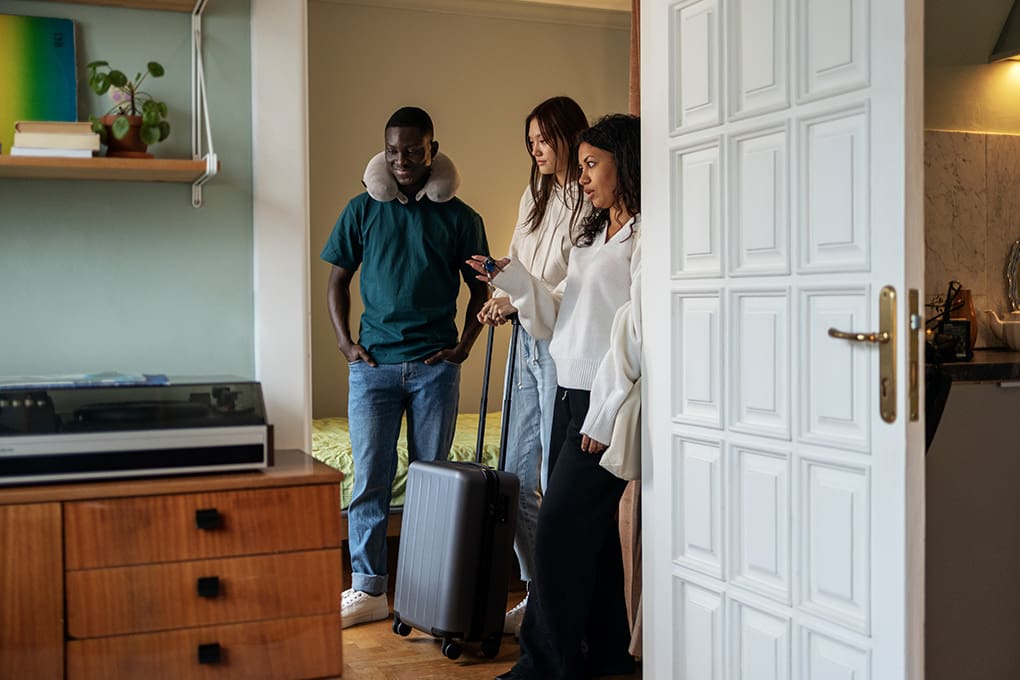
Modern property management relies heavily on automation. Smart locks that integrate with booking platforms and service software streamline nearly every aspect of vacation rental operations.
Platform-Specific Integration Benefits
Direct connections to platforms like Airbnb or Vrbo allow hosts to automate access codes and guest communications. When a booking is confirmed, a unique code is automatically generated and sent to the guest, remaining active only for the length of their stay.
This process reduces manual tasks and eliminates common errors, such as forgetting to update or delete access codes.
Integrated systems also support flexible scheduling. If a guest requests early check-in or late checkout, the platform can automatically adjust code activation and expiration times, preventing conflicts and maintaining security without additional steps for the host.
Service Provider Management
Smart locks make managing cleaners, maintenance staff, and other service providers far easier. Hosts can assign time-limited codes to each worker, ensuring access only during scheduled appointments. These codes expire automatically, eliminating the risks associated with spare keys.
This feature is especially valuable for hosts managing multiple properties or operating remotely. By granting secure, temporary access to service providers, hosts can maintain smooth operations without needing to be on-site.
Cost-Benefit Analysis and ROI Considerations
Smart locks represent an upfront investment but typically deliver returns through efficiency, security, and higher guest satisfaction.
Total Cost of Ownership
Most quality smart locks cost between $200 and $400 per unit, with professional installation adding $100 to $200 if required. However, many models are designed for DIY installation, reducing setup costs.
Over time, hosts save on locksmith fees, lost key replacements, and the labor associated with manual key handoffs.
For multi-unit property managers, these savings compound. Time saved on key management can be redirected to guest communication and property upkeep, which often results in higher ratings and repeat bookings. Many insurers also provide discounts – sometimes up to 20% – for properties with approved security upgrades, further offsetting costs.
Revenue Impact and Guest Satisfaction
Smart home technology, including smart locks, influences guest booking decisions. A recent study found that 80% of vacation guests and 92% of business travelers are more likely to book rentals equipped with smart home features.
Higher satisfaction scores from seamless check-ins also boost a property’s ranking on booking platforms, directly impacting occupancy rates and revenue potential.
In competitive rental markets, smart locks not only improve security and operations but also serve as a selling point that differentiates your property from others.
Future-Proofing Your Investment
The smart lock market continues to evolve rapidly, introducing new features that improve both security and convenience for vacation rental properties. Staying aware of these advancements helps property managers choose systems that remain effective and compatible for years to come.
Technology Evolution and Standards
One of the most significant shifts is the adoption of Matter-over-Thread, an emerging connectivity standard that allows different brands to work together seamlessly. This standard also improves battery efficiency, extending battery life to 12 months or more on compatible devices.
By reducing vendor lock-in, Matter-over-Thread makes it easier to expand or upgrade your property’s smart home setup without replacing existing hardware.
Biometric access features are also becoming more common in high-end locks, particularly fingerprint readers. While current biometric systems may be less practical for short-term rentals due to guest enrollment requirements, future developments may allow temporary biometric credentials for added security without compromising ease of use.
Artificial intelligence is beginning to influence smart lock technology as well. Some systems already use AI-driven pattern recognition to identify unusual activity, send predictive maintenance alerts, or adjust access schedules automatically. These features reduce manual oversight for property managers while improving security response times.
Making the Right Choice for Your Property
Selecting the right smart lock depends on the specific characteristics of your property, your guest profile, and how you prefer to manage operations. This decision influences not only day-to-day access control but also guest satisfaction and the long-term value of your property.
Property-Specific Assessment
Different property types require different considerations. Single-family homes may prioritize weather resistance and integration with broader home security systems, while condominiums or multi-unit buildings might need solutions that meet HOA or building code requirements.
Door construction, such as metal versus wood, and environmental factors like salt air or extreme temperatures can also impact lock performance and longevity.
Management Style Alignment
Your approach to property management should guide your feature priorities. Hands-on hosts who meet guests in person may prefer simple smart locks with basic remote functions.
Property managers overseeing multiple units often benefit from fully automated systems that integrate with booking platforms to generate and manage guest codes automatically.
Short-term rentals with frequent turnovers gain the most from automated solutions, while monthly rentals can operate efficiently with simpler, cost-effective models. Also consider your comfort level with technology; some systems are highly user-friendly, while others require more technical knowledge to set up and maintain.
Professional Installation vs. DIY Considerations
Smart locks are typically designed for straightforward DIY installation, but certain scenarios justify professional setup to ensure reliability and compliance with building standards.
When Professional Installation Makes Sense
Complex door hardware, integration with existing security systems, or properties with multiple access points may require professional installation to ensure seamless operation.
In commercial settings or properties subject to building codes, professional installation helps maintain compliance and preserve insurance coverage.
For high-value rentals or premium markets where malfunctions could harm guest reviews, professional setup provides added assurance and immediate technical support.
DIY Success Factors
DIY installation works well for standard doors and hosts who are comfortable with basic tools. Most manufacturers include detailed guides and customer support, making setup manageable for non-professionals.
After installation, thoroughly test all functions, confirm Wi-Fi or Bluetooth connectivity, and verify code management features before the first guest stay.
Document the installation process and keep records for warranty and maintenance purposes. Providing a simple guest guide with step-by-step instructions minimizes confusion and reduces support calls. Clear communication about lock use is essential to maintaining a smooth guest experience.
Final Thoughts on Smart Locks for Airbnb and Vacation Rentals
Smart locks have become essential for modern vacation rentals, offering unmatched convenience and security for both guests and property managers. By eliminating physical keys, these systems reduce risks from lost copies and simplify access control through temporary digital codes.
Their benefits extend beyond entry management, integrating with alarms, cameras, and booking platforms to streamline operations and improve guest satisfaction. With options like Yale Assure Lock 2 for Airbnb integration, Schlage Encode Plus for high security, August Wi-Fi for retrofits, and Kwikset Halo for budget-conscious hosts, there is a solution for every property type and management style.
As connectivity standards and features continue to advance, adopting a future-proof system now ensures long-term value and fewer headaches. To upgrade your property’s security and guest experience, browse Batten’s curated selection of smart locks and home security solutions today.
Ready to secure your vacation rental with professional-grade smart lock solutions? Browse Batten’s expert-recommended home security tools and find the perfect keyless entry system to protect your property and delight your guests.
Frequently Asked Questions
How Do Smart Locks Handle Multiple Guest Stays Without Manual Code Changes?
Smart locks integrated with booking platforms like Airbnb automatically generate unique codes for each reservation. These codes activate at check-in and expire shortly after checkout, eliminating manual updates. Property managers can also create scheduled codes for cleaners and maintenance teams, reducing administrative work while maintaining security between stays.
Can Smart Locks Still Work During Power or Internet Outages?
Most smart locks are battery-powered and remain operational during power outages. While Wi-Fi-dependent features like remote monitoring may pause, manual entry via code or key override still works. Property owners should document backup access procedures and provide clear instructions to guests in case of outages to avoid lockouts.
What Security Certifications Should I Look for When Choosing a Smart Lock?
Look for ANSI/BHMA ratings, which assess security, durability, and finish quality. Grade 1 is the highest security level, often found in commercial-grade locks, while Grade 2 is common for residential applications. Features like encryption, tamper alerts, and SmartKey technology further improve protection against forced entry or lockpicking attempts.
Are Smart Locks Compatible with All Door Types and Existing Deadbolts?
Compatibility depends on door thickness, backset measurement, and hardware type. Many retrofit models, such as August Wi-Fi, work with existing deadbolts, preserving original keys and aesthetics. Full-replacement models like Yale Assure or Schlage Encode require standard single-bore doors but are widely compatible with U.S. and Canadian entry doors.
How Can Smart Locks Improve Guest Experience and Increase Bookings?
Seamless self-check-in with keyless entry significantly improves guest satisfaction, leading to higher ratings and repeat bookings. Properties with smart locks often attract tech-savvy travelers and business guests who value convenience. Higher check-in ratings can boost listing visibility on booking platforms, directly increasing occupancy and revenue potential.
What Maintenance Is Required to Keep Smart Locks Reliable over Time?
Routine maintenance includes checking battery levels, cleaning keypads, and ensuring firmware is updated for security patches. Hosts should test locks between guest stays to confirm smooth operation and recalibrate alignment if doors shift over time. Keeping spare batteries and documenting replacement procedures prevents downtime during peak rental periods.
Sources
- Connect a smart lock to Airbnb for smoother check-ins – Resource Centre – Airbnb
- Smart Lock Market Size & Outlook, 2030
- 11 Home Burglary Stats Every Homeowner Should Know in 2025
- FBI Releases 2024 Quarterly Crime Report and Use-of-Force Data Update — FBI
- When Do Most Burglaries Occur? Everything You Should Know
- 10 Surprising Home Burglary Facts and Stats | SafeWise
- How Much Can a Home Security System Save on Insurance Premiums?
- Smart Hospitality Market Size, Share & Growth Report to 2033
- Smart Lock Market Size, Demand, Forecast | Industry Trends 2030
- Automating Short-Term Rental Check-In with Smart Locks | Hospitable
